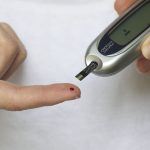The Transformative Power of Fasting on Health
The human body has the innate ability to heal itself, especially when one practices fasting. Eating, especially frequent meals as often advised by health professionals, is a stressor that keeps the body preoccupied with digestion and metabolite management. However, the body is capable of much more.
Fasting prompts the body to conserve energy, leading to the elimination or recycling of unnecessary elements. This process includes a metabolic shift where the body transitions from glucose to stored fat as its primary energy source, triggering numerous health benefits:
- Prevention and reversal of (pre-)type 2 diabetes
- Weight and fat loss, improved cardiometabolic health
- Lowered resting heart rate and enhanced cardiovascular stress adaptation
- Decreased blood pressure
- Reduction in inflammation and oxidative stress
- Enhanced cognitive abilities and stress resistance
- Lowered risk of cancer through reduced cell proliferation
These benefits stem from the body’s switch to fat as an energy source, which is why intermittent fasting is a promising treatment for obesity, metabolic syndrome, and type 2 diabetes.
Reversing Type 2 Diabetes Naturally
Insulin resistance, a key factor in type 2 diabetes, is driven by excessive insulin levels. Fasting naturally lowers insulin secretion, enhancing cellular responsiveness and sensitivity to insulin. Sadly, most individuals spend more time in a fed state, leading to chronic insulin elevation and reliance on glucose, which can result in insulin resistance and metabolic syndrome.
It typically takes 12 hours after the last meal for the body to enter a fasting state and for the liver to begin fat metabolism. This is why many see fat loss with intermittent fasting without altering their diet or exercise routine.
Fat as a Preferred Fuel
To improve fat burning for energy, consider the following strategies:
- Fasting, which keeps insulin levels low, allowing the liver to metabolize fat
- Low carbohydrate diets, which promote fat utilization by limiting glucose availability
- Exercise, particularly intense workouts, which deplete glucose and glycogen stores, forcing the body to burn fat
Historically, the human body has been adapted to burn fat for millions of years, making it a cleaner energy source compared to sugar.
Optimizing Meal Timing
Adopting a twice-daily eating schedule without snacking can enhance fat burning and insulin sensitivity. By fasting for extended periods, particularly overnight and in the morning, the body continues to metabolize fat.
Exercising in a fasted state further depletes glycogen stores and enhances fat adaptation. Many individuals find they can skip breakfast without issue, aligning with our evolutionary past as hunter-gatherers who ate later in the day.
Dispelling Fasting Myths
Common misconceptions about fasting include the necessity of breakfast, the idea that small frequent meals are beneficial, and concerns about muscle loss or slowed metabolism. However, fasting can actually increase growth hormone levels, which is beneficial for muscle building, and can slightly speed up metabolism in the short term.
Guidelines for Healthy Fasting
Effective fasting involves eating the last meal early in the evening, skipping breakfast, and breaking the fast after exercise with high-quality proteins and fats. It is important to maintain nutritional intake and hydration during fasting periods, and to avoid using fasting as an excuse to consume unhealthy foods.
Embracing the Freedom of Intermittent Fasting
Intermittent fasting offers simplicity, mental clarity, and a path to optimal body composition and disease prevention. By forgoing breakfast and enjoying nutrient-dense meals later, one can experience the full benefits of fasting without feeling deprived.
READ MORE: Why Should I Fast? Fasting Health Benefits
Sources:
https://www.bouldermedicalcenter.com/intermittent-fasting-and-health/#:~:text=Because%20our%20bodies%20conserve%20energy,heart%20rate%20and%20blood%20pressure.
https://www.endocrine.org/news-and-advocacy/news-room/2022/intermittent-fasting-may-reverse-type-2-diabetes#:~:text=Research%20shows%20intermittent%20fasting%20can,%E2%80%9D%20said%20Dongbo%20Liu%2C%20Ph.
https://www.ncbi.nlm.nih.gov/pmc/articles/PMC8839160/#:~:text=Adherence%20to%20IF%20effectively%20decreases,IF%20to%20induce%20health%20benefits.









